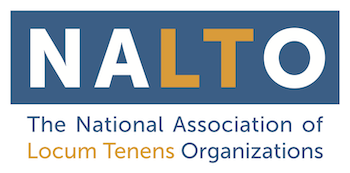Although it is only January, April 15 will be here before you know it. Physicians who practice locum tenens are independent contractors and, as such, have certain financial opportunities and responsibilities related to their tax status. Here are six ways to reduce stress and help you save on taxes when it is time to file your returns.
KEEP GOOD EXPENSE RECORDS
As an independent contractor, you are eligible to deduct a variety of business expenses. Some of these include travel expenses, temporary housing, and meals not paid for by your locum tenens agency; professional fees such as obtaining and renewing medical licenses, continuing medical education, journal subscriptions, and clothing you wear exclusively for practice like lab coats or scrubs; as well as premiums for health insurance you purchase for yourself, your spouse, and dependents. You may also be able to deduct a portion of your cell phone bill and business equipment costs, including your PDA, laptop computer, and stethoscope. Keep receipts, maintain good records, and work with your accountant to make sure you are taking every deduction to which you are legally entitled.
TRACK YOUR INCOME
Unlike employed doctors who receive W-2 forms as a record of earned income, locum tenens physicians receive 1099 forms from each agency with which they contract throughout the year. As an independent contractor, keep track of your income as it comes in and review 1099 forms carefully when they arrive in January to make sure that the numbers match your records. The Internal Revenue Service (IRS) receives copies of all your 1099s. Be sure to report all of your income.
PLAN AHEAD
A mistake many first-time independent contractors make is not planning ahead for tax payments and then scrambling to come up with enough money to pay their taxes in April. Each time you receive a check from a locum tenens agency, immediately set aside a portion of that money in a separate account to pay estimated quarterly taxes and to pay the IRS and your state each year. Your accountant can help you determine what percentage of each check to reserve for taxes and provide you with quarterly tax payment forms and schedules.
OPEN A RETIREMENT ACCOUNT
If you do not have a retirement plan through an employer, speak with your accountant or financial planner about setting up a retirement savings account. An IRA, Roth IRA, or SEP-IRA (Simplified Employee Pension Plan) are all relatively simple ways to stash money for retirement and take a deduction for doing so, while your funds grow tax-deferred. It is important that you carefully invest your retirement funds. Be sure to diversify your portfolio, and unless you consider yourself an investment "expert," hire a fee-only certified financial planner (CFP®) to assist you. Visit http://www.cfp.net/to find a CFP® near you. Your accountant may be able to provide a referral, or ask friends for a recommendation.
CONSIDER A HEALTH SAVINGS ACCOUNT
If you buy your own health insurance, consider combining a "high deductible" plan with a health savings account (HSA). For 2009, an individual can make a tax-deductible HSA contribution of up to $3,000 ($5,950 for a family) and use the money to pay for medical expenses not covered by insurance.
ENGAGE A COMPETENT ACCOUNTANT
If your finances are extremely simple, you may be able to save money by doing your own taxes using TurboTax® or a similar computer program. Most locum tenens physicians, however, find it helpful (and worth the investment) to engage a qualified accountant to do their taxes, provide advice, and answer questions that arise throughout the year. The best way to find a good accountant is to ask your friends and colleagues to recommend a professional they know and trust. Be sure to check an accountant's credentials and standing with the state accountancy board before making your first appointment.
Paying taxes will probably never be an enjoyable activity, but it does not have to be stressful. If you are organized, seek advice from qualified professionals, and stay on top of the process, you will be prepared for tax time.
Views and opinions expressed herein are those of NALTO and not necessarily those of Advanstar Communications Inc. or LocumLife.
About the Author
Karen Childress is a Colorado-based freelance healthcare writer currently crafting a series of articles on behalf of NALTO.
